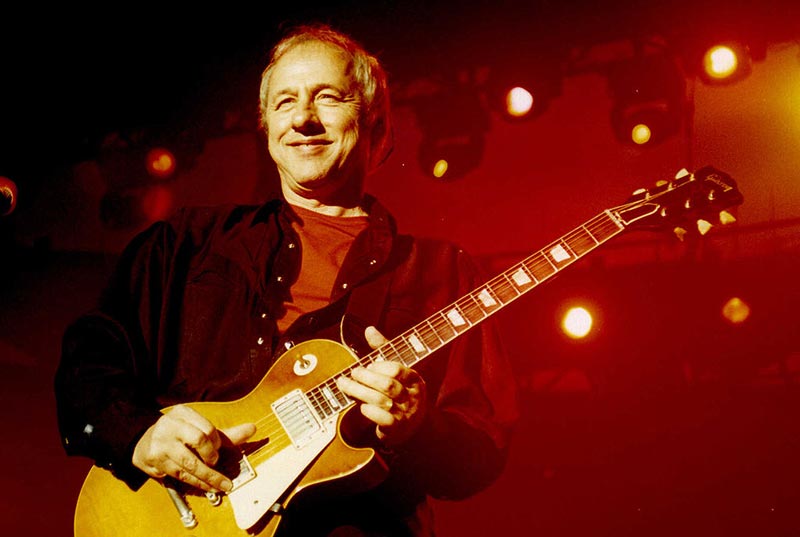
It seems that every week plays host to its very own censorship controversy. Last week, it was an American publisher proposing to replace Huckleberry Finn’s 219 instances of the word “nigger” with the word “slave”. This week it’s the Canadian Broadcast Standards Council nixing the word “faggot” in the Dire Straights 1985 single, “Money For Nothing”. I wonder if Mark Knopfler ever imagined himself rubbing shoulders with someone of Mark Twain’s stature. Both Marks have paid a price for engaging in biting social commentary – call it the price of being misunderstood.
Here are the offending lyrics:
See the little faggot with the earring and the makeup
Yeah buddy that’s his own hair
That little faggot got his own jet airplane
That little faggot he’s a millionaire
A listener in St. John’s NL complained to the CBSC that this is offensive. Of course it’s offensive. That’s the point. How can Knopfler successfully ridicule a loud-mouthed bigot without giving us some of that bigotry?
It is worth noting that in the case of both Huck Finn and Money For Nothing, censorship was imposed by private organizations. (The CBSC is an association of private broadcasters.) Orwell envisioned a future in which censorship would be imposed by a powerful government. But this is not 1984. This is 2011 when the anchoring dogma of our age is privatization. Why should government sully its hands in the dirty business of censorship when it can rely on private enterprise? We are supposed to be grateful for the CBSC because it walks a tightrope between government regulators and private broadcasters that keeps broadcast standards in private hands so we don’t end up with something as intrusive as the FCC in the U.S. – you know, where one listener can complain and get the song banned without public consultation.
This illustrates, yet again, the distinction between two competing theories of meaning. There are many more than two, but popular debate reduces them to two:
1. Meaning inheres in the word. So, for example, one can simply look at the word “faggot” and instantly deduce its offensive connotation. There is a certain incontestable faggotness that belongs to the word “faggot”.
2. Meaning is contextual and can only be deduced by, for example, a word’s relation to other words, the intention of the person speaking/writing (or in this case, singing) the word, the milieu of the listener/reader, etc.
If you subscribe to the second approach, it is impossible to say: “That word is offensive.” Instead, you have to give reasons for the word’s offensive qualities and those reasons have to reference things beyond the word itself.
Often, in situations like this, the regulatory body assumes a paternalistic role. It may adopt a contextual approach to meaning, but nevertheless issues a ban in the interests of protecting a susceptible public. It is the path of least offense and encourages a watered down content. However, it is clear from a CBC interview with CBSC director, Ron Cohen, [link broken] that our standards watchdog has not taken that approach. Said Mr. Cohen: “The decision really doesn’t relate to the Dire Straights song at the end of the day. The decision relates to the word in question.” In other words, the CBSC has adopted the first approach to meaning.
This is unfortunate, and for two reasons:
First, it limits speech based on what is, in effect, a throwback to magical thinking. At a time when the power of books has been demystified by digital publishing, and more people choose to affirm than to swear on a Bible in a court of law, when we give primacy to reason and science over ancient arts like necromancy and alchemy, it seems incredible that we would still believe that meaning is a reified creature that lives inside a configuration of letters. I might as well take my investment advice from tea leaves.
Second, it hinders serious conversation. A more mature approach in any conversation is to engage in a suspension of offense. As a society, we seem inclined to take offense at every last thing our neighbours say and do. By all means, let us engage in critical exchanges, but those exchanges rarely need to end with: “And by the way, I disagree, and because I disagree, I take offense, and because I take offense, I will seek your punishment.”
It is an art to hear difficult things, to hold one’s tongue, to sit with compassion, to hear those difficult things again, and then to delve more deeply.
Mark Knopfler walked into a Hardware store with a wall of televisions all tuned to MTV. A worker stood there and offered a commentary on what he was watching. From that, Knopfler produced what could be described as a second-order commentary – a commentary on the commentator. This is a genre with a long and venerable history. It’s called social observation.
The good news is that after 25 years, most listeners are smart enough to get it. I have great faith in the innate intelligence of ordinary people. Bureaucracies? Not so much.
For more on the song and its history, Wikipedia provides a good account.
Photo Credit: aherrero [CC BY 2.0 (https://creativecommons.org/licenses/by/2.0)]

Not sure, but I think he’s also wearing blue eyeshadow. You know, like Trump always does . . . DUN-DUN-𝘋𝘜𝘕𝘕𝘕𝘕 . . . 🙂